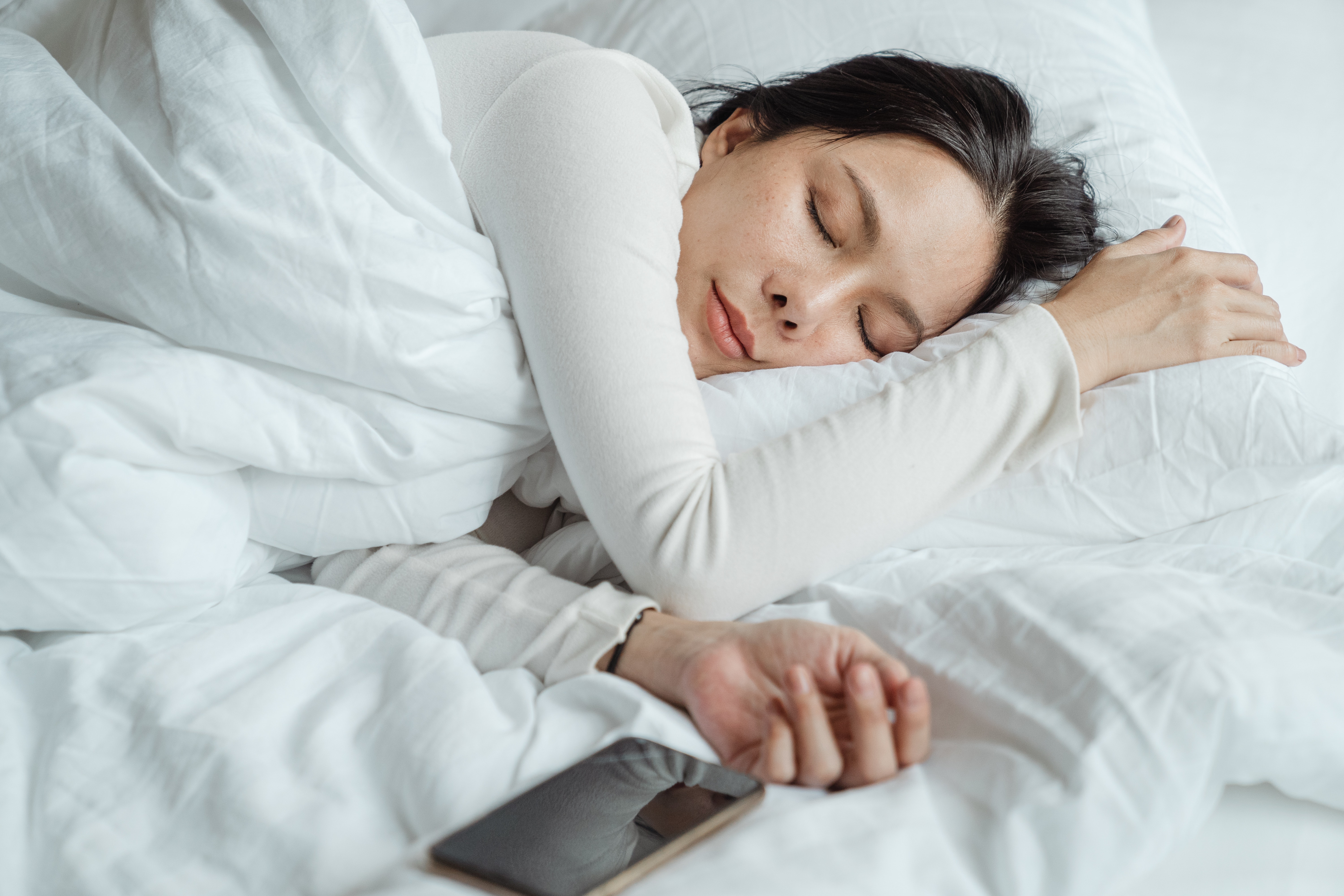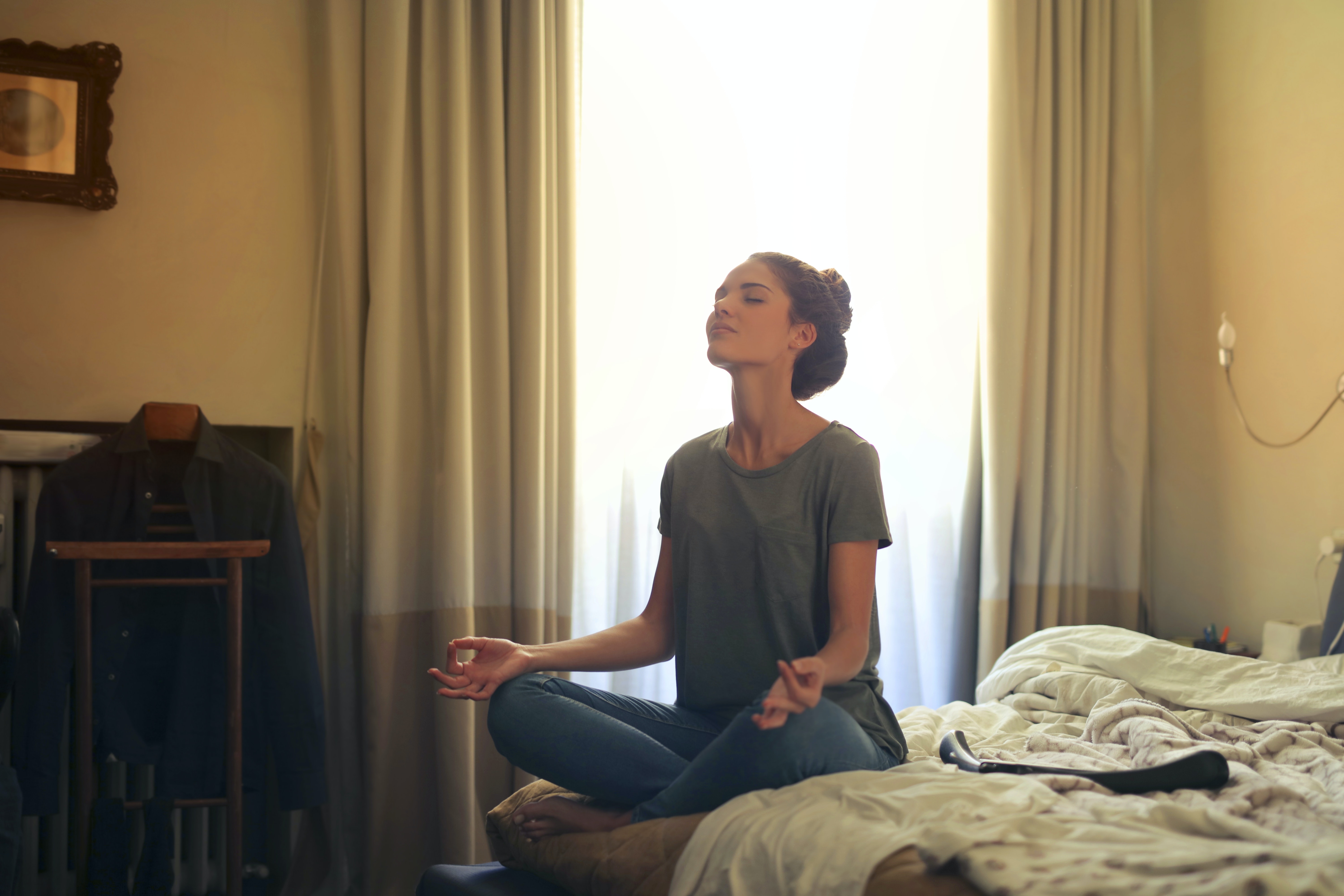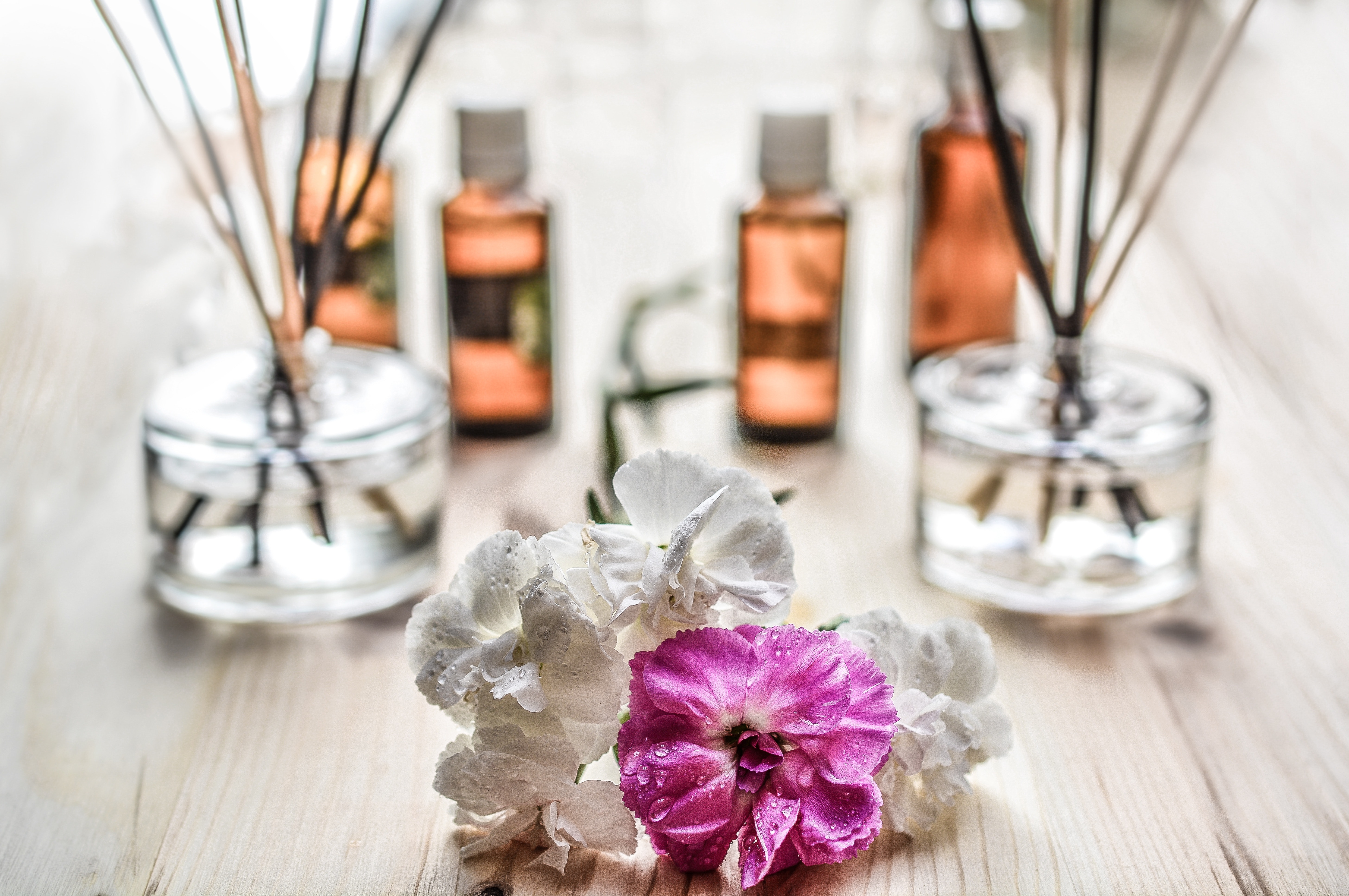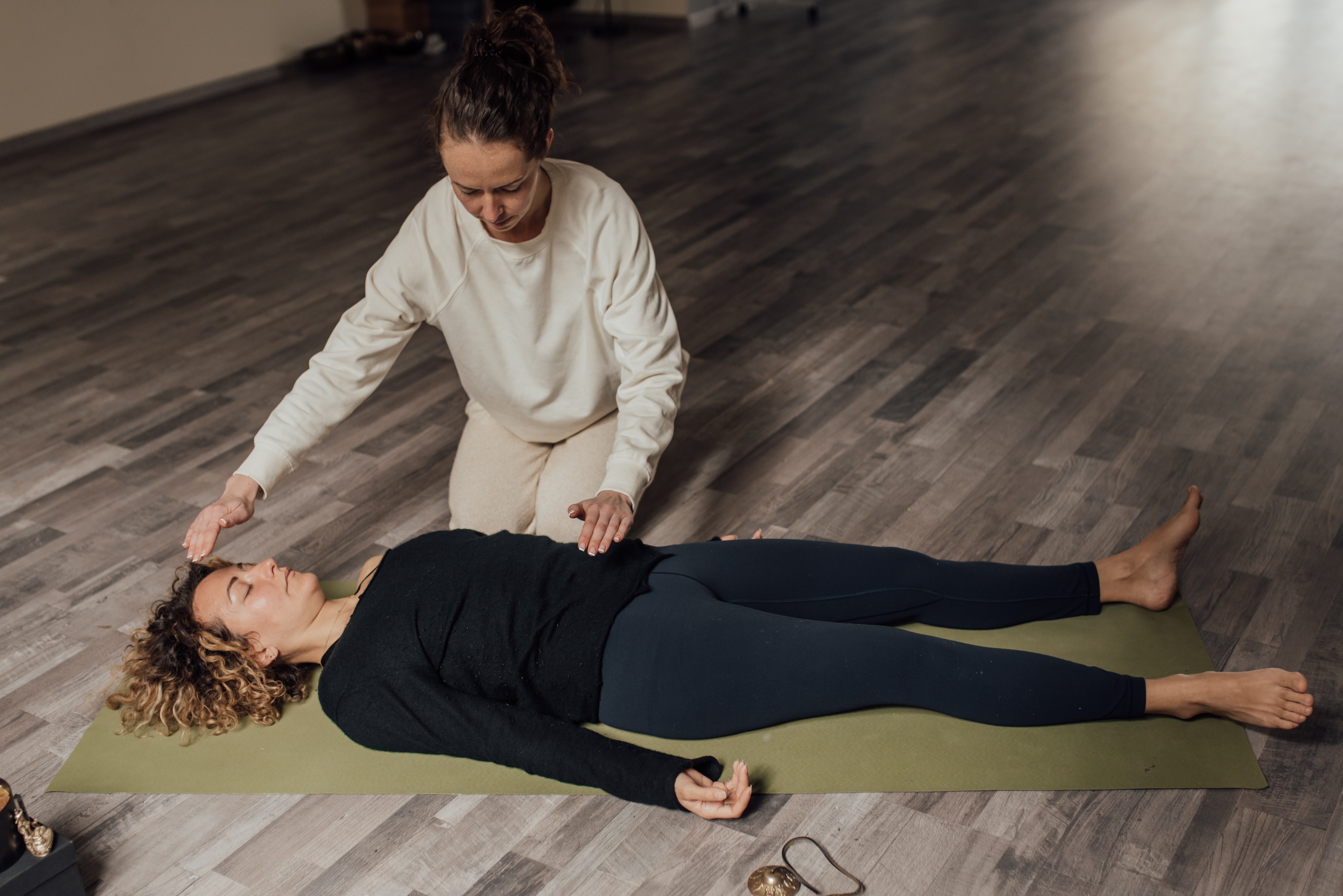8 Scientifically Proven Ways to Sleep Better
7 minuteRead
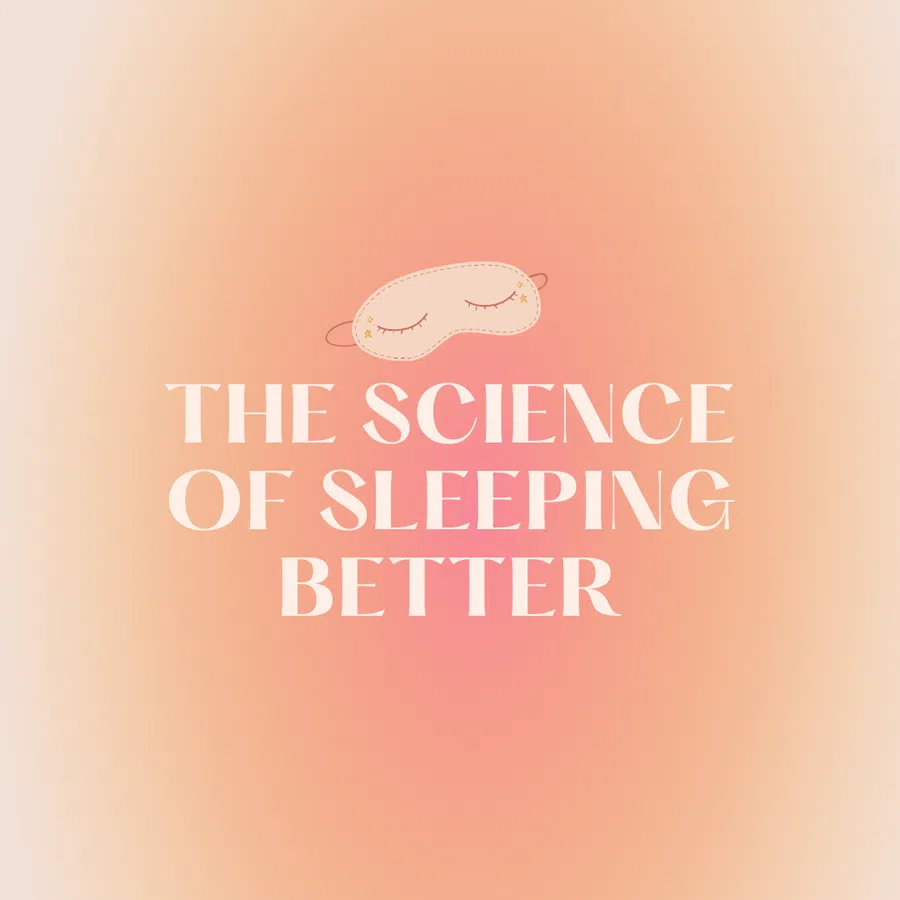
Sleep is not only pleasurable, but it is also essential for our general health. Your brain cleans up the rubbish and carefully stores your memories as you sleep. A good night's sleep also keeps the rest of your body in good working order, allowing you to burn fat and regenerate tissue. Sleep is, in reality, an essential daily treatment for your brain and body.
What Happens to You While You're Sleeping?
Both the brain and the body begin to undergo noticeable changes within a minute of falling asleep. The body's temperature declines, brain activity decreases, and heart rate and respiration slow. The body's energy expenditure is reduced during sleep, which is unsurprising.
It's crucial to remember, however, that sleep is a dynamic process. You really go through many sleep cycles in a single night, each of which lasts between 70 and 120 minutes and is made up of different sleep stages. These sleep stages are critical to understanding how sleep works.
What Are the Stages of Sleep?
There are two forms of sleep: REM (rapid eye movement) and NREM (non-rapid eye movement) (which has three different stages). Each is associated with distinct brain waves and neuronal activity. Sleep is separated into four stages, each of which is divided into two categories. During a typical night, you cycle through all stages of non-REM and REM sleep numerous times, with longer, deeper REM periods happening closer to morning.
In stage 1, you've just fallen asleep. Your heartbeat, breathing, and eye movements slow down during this brief phase of relatively light sleep (which lasts a few minutes), and your muscles relax with periodic twitches. Your brain waves begin to slow down from their alertness patterns during the day.
After this you are transitioning to stage 2, which involves a further slowing of brain and body activity. Stage 2 non-REM sleep is a light sleep stage that precedes deeper sleep. Your breathing and heart rate slow, and your muscles relax even more. The warmth of your body drops, and your eye motions come to a halt. The activity of the brain waves slows, yet there are transient bursts of electrical activity. Stage 2 sleep takes up more of your sleep cycles than the previous sleep stages. Being awoken during these early stages of the sleep cycle is significantly easier.
Stage 3 of NREM sleep is the deepest. It happens more frequently in the first portion of the night. During sleep, your heartbeat and breathing slow to their lowest levels. It may be tough to wake you up because your muscles are relaxed. The waves in the brain become even more slower. Your muscles and body relax even more in this stage, and your brain waves reveal a distinct pattern of slowed activity that differs significantly from waking brain activity.

About 90 minutes after falling asleep, REM sleep begins. Behind closed eyelids, your eyes travel quickly from side to side. The activity of mixed frequency brain waves approaches that of alertness. Your heart rate and blood pressure rise to near-waking levels, and your breathing becomes quicker and erratic. The majority of your dreams happen during REM sleep, although some can happen during non-REM sleep as well. During this moment, brain activity increases significantly, and most of the body is temporarily paralysed, with the exception of the eyes and breathing muscles. Although dreams can occur at any stage of sleep, the most intense dreaming occurs during REM sleep. Both non-REM and REM sleep are likely required for memory consolidation. Deep sleep is thought to have a crucial part in physiological recovery, as well as effective thinking and memory.
The REM sleep period is thought to be critical for the brain, allowing vital tasks such as memory and learning to take place. It's usual to spend a greater amount of time in REM sleep as the night progresses, with the majority of it occurring in the second half of the night.
What Is Your Sleep Requirement?
As you get older, your sleep needs and habits alter, although this varies a lot across people of the same age. There is no universally applicable "number of sleep hours" for people of the same age.
Babies sleep up to 16 to 18 hours per day at first, which may help them grow and develop faster (especially of the brain). On average, school-aged children and teenagers require 9.5 hours of sleep per night. Most individuals require 7-9 hours of sleep every night, however after the age of 60, nightly sleep becomes shorter, lighter, and more frequently disrupted. Elderly persons are also more likely to take sleep-disrupting drugs.
Because of increased work hours and the availability of round-the-clock entertainment and other diversions, individuals are receiving less sleep than they need.
What Is the Importance of Sleep?
Sleep exists in practically all animal species, despite the fact that it produces vulnerability and takes time away from feeding and procreating, indicating that it is essential to well-being.
Sleep is a vital element of your daily routine; it takes up around one-third of your time. Sleep quality – and obtaining enough of it at the correct times – is just as important as food and water for life. You can't establish or maintain the neural pathways in your brain that allow you to learn and create new memories if you don't get enough sleep, and it's tougher to concentrate and respond swiftly.
Sleep is necessary for a variety of brain activities, including the communication between nerve cells (neurons). In reality, while you sleep, your brain and body remain remarkably active. According to new research, sleep serves as a housekeeper, removing poisons from your brain that accumulate while you are awake.
In newborns, toddlers, and young adults, sleep appears to be crucial for both physical and mental development. Sleep deprivation has been linked to a variety of unfavourable health outcomes in adults, including cardiovascular issues, a weakened immune system, a higher risk of obesity and type II diabetes, decreased thinking and memory, and mental health issues such as despair and anxiety.
Now that you know how important it is to get a god nights sleep, here is a scientifically proven list of 8 tried-and-true methods for falling asleep faster. This list is for you, whether you have a diagnosed sleep disorder or just have trouble sleeping on occasion:
1. Establish a soothing night time routine
It's important to stick to a consistent schedule of going to bed and waking up at the same time each day to maintain the normal sleep cycle. Setting a relaxation regimen might also assist your body in recognising when it is time to sleep. Do things that make you feel at ease: listen to music, take a bath, meditate, practise relaxation techniques. Allowing yourself time to relax and decompress before bed can cut down on the amount of time you spend awake.
2. Try to maintain a well-balanced diet
We all know that certain meals may keep us energised throughout the day, but a balanced diet can also improve your sleep. A well-balanced diet rich in carbohydrates, protein, vitamins, and minerals is essential for good sleep. You should avoid eating heavy and spicy dishes, as well as sugary foods, if you want to sleep faster. It's also important to consider the timing. Doctors also advise eating dinner at least two hours before going to bed. It is recommended that acid reflux patients eat at least three hours before going to bed
3. Limit your alcohol intake in the evenings
While it may appear that drinking alcohol makes it easier to fall asleep, it actually disrupts sleep patterns throughout the night. People can have uneasy or interrupted sleep after just a few alcoholic drinks. Furthermore, alcohol can disrupt the REM sleep-wake cycle, which is essential for feeling rested in the morning. Try switching to an alcohol- and caffeine-free beverage like chamomile, which contains calming antioxidants that help you relax and fall asleep faster.
4. Turn off all electronics
Screen usage has been shown to have a negative impact on sleep quality in both children and adults. Electronic devices generate blue light, which disrupts the circadian rhythm and lowers melatonin levels. Mobile phones, tablets, and computers should be put away at least 30 minutes before your scheduled bedtime, according to sleep specialists.
5. Relieve your mind from stress
One of the most prevalent reasons why people have trouble sleeping is stress. Some natural health activities can help you feel less anxious while also improving the quality of your sleep. According to statistics, 85 percent of those who practise yoga are less stressed, and more than 55 percent sleep better. Yoga practitioners claim that it focuses on managing breathing patterns and releasing tension through particular sequences of body positions and movement. Meditation is a type of mindfulness that can help you sleep better, as well as lower your blood pressure, relieve pain, and reduce anxiety and sadness.
6. Experiment with aromatherapy
Smell is another sense that should not be overlooked. Aromatherapy has been demonstrated to be an effective sleep aid. Lavender and damask rose essential oils, for example, can effectively help folks who have problems going asleep.
7. Use a progressive relaxation technique to help you relax
Progressive muscular relaxation is a useful form of relaxation therapy. It is frequently advised to persons who are having problems with everything from anger management to insomnia. It entails tensing and then relaxing individual muscles in a progressive process, starting at your feet and working your way up to your head. Each body component should be constricted for around 30 seconds before being released.
8. Before going to bed, take a warm bath or shower
The quality of your sleep is influenced by your body temperature. Warm up your body with a hot bath or shower before turning down the thermostat in your bedroom. Because a lower core temperature is part of what triggers the natural sleep cycle, this can help with the decline. Additionally, the warm water can aid in the relaxation of your body as you prepare for sleep.
A good night's sleep is essential for excellent health and a positive outlook. You must sleep properly at night in order to feel your best during the day. Unfortunately, you won't be able to magically make that happen. However, these are the few basic things you do to improve your sleep.
Write, Record and Answer! Consume Unlimited Content! All you need to do is sign in and its absolutely free!
Continue with one click!!By signing up, you agree to our Terms and Conditions and Privacy Policy.




